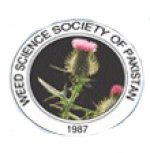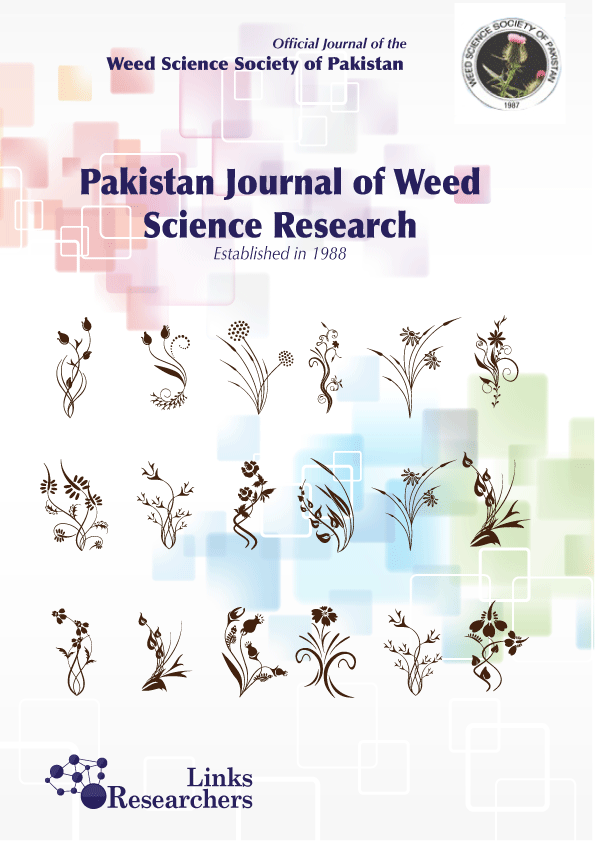Allelopathic Potential of Crop Water Extracts of Gossypium hirsutum on Germination and Growth of Wheat (Triticum aestivm L.)
Allelopathic Potential of Crop Water Extracts of Gossypium hirsutum on Germination and Growth of Wheat (Triticum aestivm L.)
Muhammad Afzal Naeem1*, Muhammad Hassaan Khan2, Tahmina Nazish3, Uzma Bashir4 and Midrarullah5
ABSTRACT
Gossypium hirsutum L. is among the leading cash crop, grown at 4.7 million acreage area in Punjab province annually. The rotational cultivation of cotton and wheat crops constitutes the major cropping pattern in Pakistan. Current study was undertaken to investigate the allelopathic effect of the post-harvest remnants of cotton crop on the germination and growth parameters of successor wheat crop. Experiment was laid down in complete randomized design. The seeds (n=10) of Triticum aestivum L. were placed in each replicate and treated with aqueous extracts from various parts of G. hirsutum (root, stem and leaves) at concentration (0-100% v/v). Among the various test extracts of G. hirsutum, leaf extract were found to impart maximum inhibitory effect on the germination indices of the wheat (T. aestivum) followed by the stem extracts, as the highest concentration of ACWE (i.e. 100%) caused the reduction of 45.65, 54.55, 50.9, 61.6, 5.3 and 9.4 % in germination percentage, germination energy, germination index, vigour index, germination coefficient velocity and relative percentage of wheat, respectively, compared to the control. Delay of 2.98 % mean germination time of wheat. Therefore, it may be inferred that the allelochemicals exuded by G. hirsutum crop residues (leave and stem) may have inhibitory effect on the various germination and growth indices of wheat and consequently results in poor crop development and yield statistics.
To share on other social networks, click on any share button. What are these?




